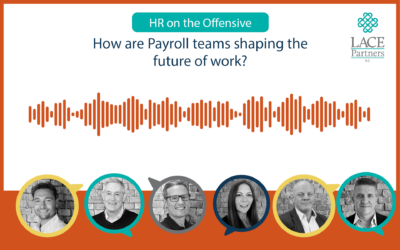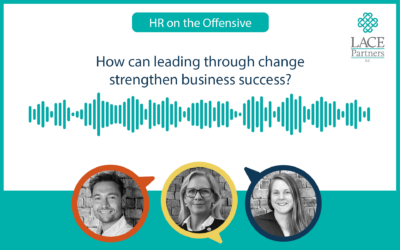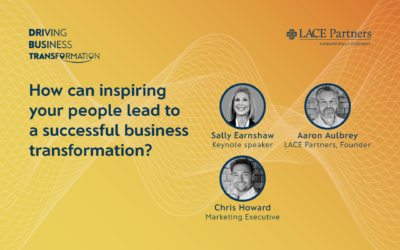Our latest HR Shared Services (HRSS) forum sparked loads of interesting debate about the issues that are front and centre right now. From the challenges of securing the next generation of talent to finally cracking hybrid working, we gained some fantastic insight from our members. Read on for the key discussion points from the forum. We meet quarterly and if you’d like to get involved, check the bottom of this blog to register your interest.
The endless search for next gen talent
Just how much AI and automation is now part of the talent search for HRSS teams kicked off an interesting debate in our latest forum, given the current chat from businesses about how new technology will impact hiring strategies. Regional differences in attitudes towards AI and chatbots showed the impossibility of multi-national businesses taking a one-size-fits-all approach to recruitment. For example, Germany has largely rejected chatbots for hiring purposes as the demographic weren’t on board.
How much technical knowledge does HRSS need in 2023?
The demand from business for new hires with far higher experience of and knowledge in data analytics and reporting is changing the way HRSS is hiring. Traditionally, there’s been a focus on transactional HR talent without a complex technical bent. However, today, analytical skills are becoming increasingly important. In some cases, this is placing constraints on budgets that weren’t mapped out to include this kind of advanced skill level. Just how willing businesses are to accept the need to change the offering to accommodate their new requirements remains to be seen.
Shifting towards a people-centred approach
Businesses are also shifting requirements from seeking only transactional advisors to people advisors within an HRSS environment. Members agreed that they are seeing people advisory services moving into the HRSS function within HR in many cases. Aligned to this is the fact that many businesses are moving from a Target Operating Model (TOM) towards a Target Integration Model (TIM). The latter highlights the importance of employee satisfaction as a key metric, based on the hypothesis that an improved employee experience will improve retention of top talent and build two-way trust.
The constant conundrum of hybrid working
Hybrid working continues to challenge businesses in myriad ways. The group discussed examples of employees pushing back on commuting costs during the cost of living crisis. For example, “I now have to travel into the office and my costs have risen – how will that be reflected?”
It’s possible this employee take is becoming generational as new employees enter the workforce post-COVID. For businesses, however, there is the fear of remote working stifling innovation and creativity. They also want employees to be able to upskill colleagues – particularly those entering the workforce for the first time. This is obviously a lot more difficult to achieve if employees are working remotely. Finding ways to drive quick learning while working remotely is a key challenge for businesses, who also recognise that productivity has increased since remote working became mainstream.
In other words, there is a balance somewhere out there for businesses to find. Trade-offs will be necessary to achieve it, and the general feeling is that no one is quite there yet.
Can remote working adversely impact career progression?
An aside to the hybrid debate was the question of whether it inhibits career progression. Given there is less face to face time with line managers when working from home, does this impact the chances of promotion, for example? Line managers are an important conduit for company information and exposure to other parts of the business. Some voiced concern that without daily interaction with line managers, collaboration and innovation would be held back.
Can you keep your work friends while remote working?
Another element of the hybrid/remote working debate is whether it’s possible to forge and maintain those important work relationships. There are links between employees making connections on a friendship level and high engagement, so does a lack of face-to-face rapport ruin this? And does that then have a knock-on detrimental impact on employee engagement?
These questions remain open for now and there’s an argument that it’s not a ‘one size fits all’ situation. Either way, organisations that are quick to react and respond often drive higher levels of employee engagement. Being agile and ready to flex hybrid rules along the way is guaranteed to drive productivity and engagement levels.
Keeping it central or letting regions go their own way?
Organisations that span multiple countries often operate through a mix of centralisation and decentralisation. For example, they may deliver centralised services from one location, but allow other regions to take a decentralised approach. Factors that contribute towards this include language barriers and cultural differences and the way these could feasibly change the way HR manages them.
In some cases, an organisation’s approach to centralisation may depend on the complexity of the business itself and the labour laws. A few attendees cited countries such as France as being particularly complex, as are countries with complicated tax laws.
Controlling a global network from a regional centre
There was discussion surrounding the difficulties regional centres may face when covering a global network of employees. For example, an employee based in Eastern Europe speaking English to another based in Turkey makes it far more difficult for the business to properly serve the employee.
A centralised approach offers benefits including the ability to pool intelligence into a knowledge hub. This then helps other parts of the business access best practice. For example, if someone from the Americas is particularly skilled in a specific process, a European employee could then access this knowledge.
AI chatbots just aren’t good enough – yet
The group consensus was that they’re not comfortable in adopting AI chatbots yet, given the technology’s lack of maturity. Most of the technology used or seen by attendees solely focuses on delivering automated FAQs. And while there is the obvious potential of generative AI to adapt this kind of chatbot into a far more useful function for employees to use, this appears to be something for the future.
Using generative AI for policy updates
While it’s easy to get carried away with ChatGPT-like technology taking on the dull but necessary tasks associated with keeping articles and policies up to date, there are many concerns surrounding this approach. For example, given that generative AI uses large amounts of data from external sources, there is an obvious danger of internal policies, procedures and sensitive company information leaking outside of the business.
However, if a business is able to collate and analyse data collected from automated FAQs, they will then be able to improve processes to give employees faster access to the answers they need. This again feeds into the need to recruit people who have the data analysis skills necessary to use automated chatbots in a useful way.
Measuring employee experience
The debate evolved into discussing how HRSS are currently measuring the employee experience. Some are still leveraging ‘employee listening’ sessions in order to gather data that they can use to measure employee sentiment.
But this is outdated and time consuming, so what are the alternatives? Some members deliver localised employee ‘change champion networks’ where there is a designated person asking specified questions on a regular basis to gauge sentiment across different regions and countries. This allows some teams to get real time feedback on the ground, although it’s still a manual process that takes time and resources.
What’s next for HRSS?
The challenges, needs and general sentiment expressed in our HRSS forum reflects what’s happening right now on the ground for this function. These challenges will continue to evolve, as businesses continue to shift towards employee centric processes.
We’re excited to see what will have changed by our next forum. If you’re interested in finding out more, drop your details in the box below. Our forums are invitation only and we’d love to hear from you.






